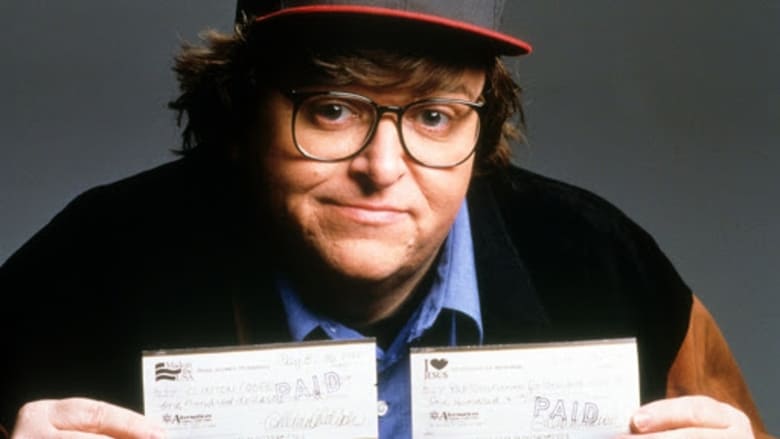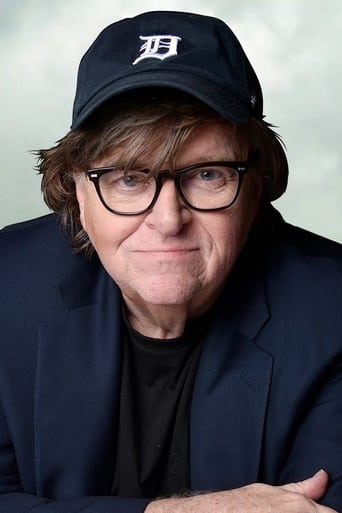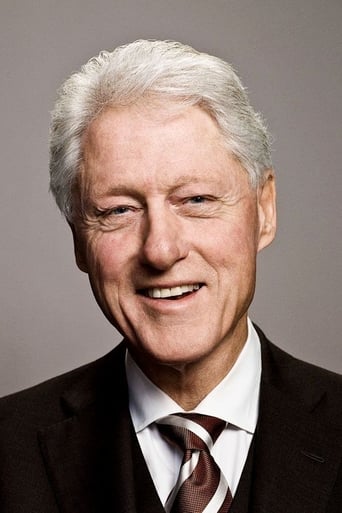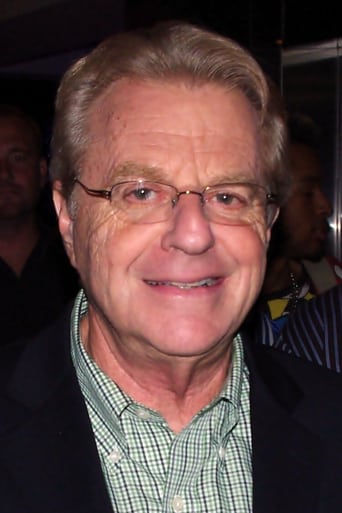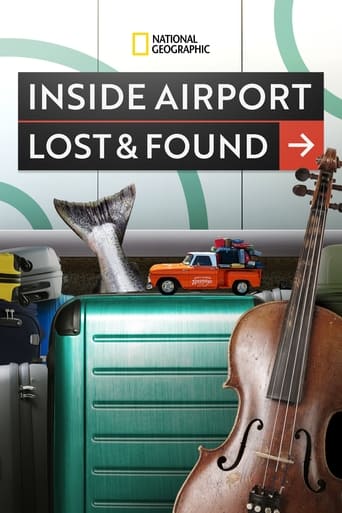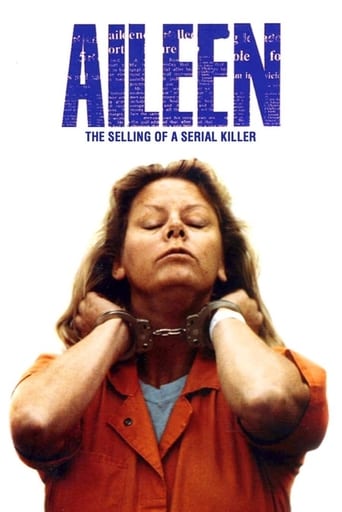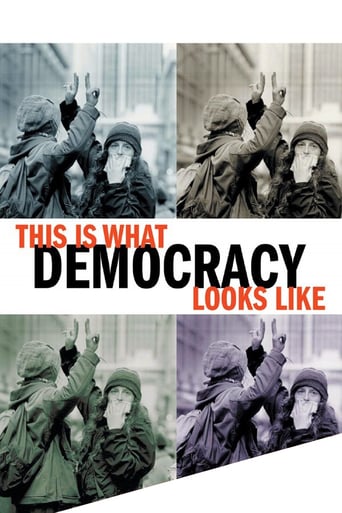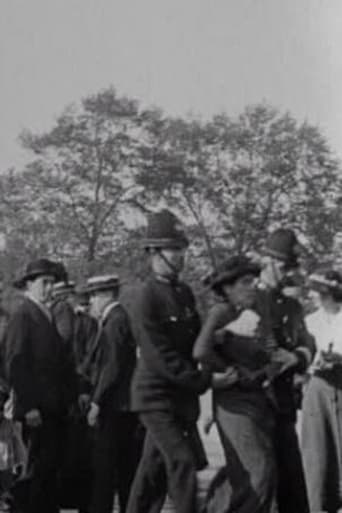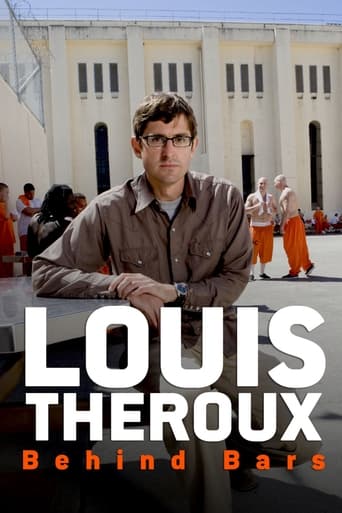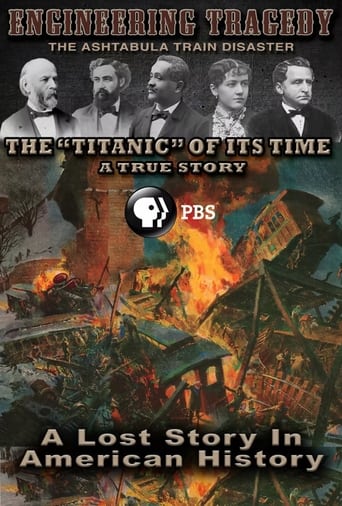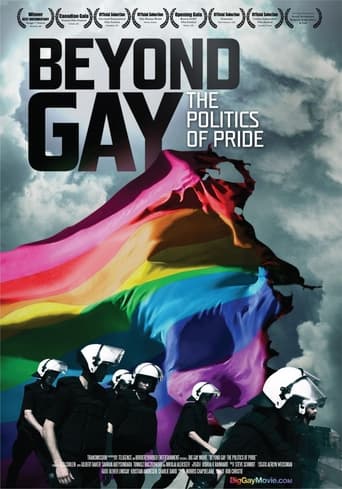The Big One (1998)
The Big One is an investigative documentary from director Michael Moore who goes around the country asking why big American corporations produce their product abroad where labor is cheaper while so many Americans are unemployed, losing their jobs, and would happily be hired by such companies as Nike.
Watch Trailer
Cast
Similar titles
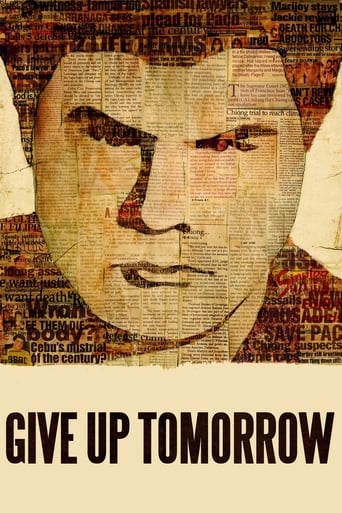
Reviews
Don't listen to the negative reviews
A Masterpiece!
Great movie! If you want to be entertained and have a few good laughs, see this movie. The music is also very good,
The plot isn't so bad, but the pace of storytelling is too slow which makes people bored. Certain moments are so obvious and unnecessary for the main plot. I would've fast-forwarded those moments if it was an online streaming. The ending looks like implying a sequel, not sure if this movie will get one
What does one do when one makes a bucket load of money from a movie were you whinge and whine about how progress has destroyed your home town, and you spend an hour and a half fictitiously chasing the CEO of a major corporation and make it appear on camera that he does not want to talk to you? - More of the same.Basically this film is about a book tour where Michael Moore travels across the United States holding signings and conferences about a book that he wrote called Downsize Me, and spends all of his time criticising Corporate America. Now don't get me wrong, I am a big fan of criticising corporate America because the nature of the system which is based on greed and on lining the pockets of a minority to the expense of the majority is something that needs to be criticised – it is just that I don't like it when Micheal Moore does it because it is becoming clear that the only reason he is doing it is because people pay him money to watch his movies and to read his books.The question that I have is what does Michael Moore do with all the money that he makes from these enterprises? I know I won't be able to ask him because he doesn't like to give interviews in exactly the same way that the CEOs he chases allegedly don't like to give interviews. I suspect the reason that he doesn't like to give interviews, and the reason that CEOs don't like to give interviews to him, is because they do not trust him and they do not know how he is going to manipulate the stock footage that has been taken of those interviews to his own advantage.Anyway, the whole idea of downsizing and moving to Mexico (or other developing countries) is a double edged sword. Manufacturing in America (and in Australia) is a dying industry because it is much cheaper to move it overseas. Further, the costs of setting up factories are so much cheaper because the laws that surround workplace rights and health and safety do not exist, and without tariffs, companies are simply going to behave like water, and that is move to where it is cheapest. Personally I do not like it, but that is the way it is happening. Basically in the modern democracy the unskilled labour is moving to the service industry, and skilled labour is going to a knowledge base (though workers in the construction industry are still needed because you simply cannot off shore them).Once again, it is difficult to tell what is true and what has been manipulated in this film. For instance, it is quite clear that the interview with Phil Knight has been edited to bits to simply show us that he does not care about the conditions of the workers in Indonesia, and that he does not want to open factories in the United States because people in the United States do not want to make shoes. However Knight is right when he says that people who are unemployed will say they want to do any job, yet it is also true that it is so much cheaper to employ people in Indonesia and import the shoes than to pay people in the United States to do it. Unfortunately, it is not necessarily the CEOs and executives that are doing this but the super funds and managed investments that are forcing the companies to do this because they want their returns and us, the people who hold the shares and who have financial stakes in those funds what our returns as well.
Having exposed GM in "Roger & Me", corporate, political, and law enforcement misdeeds on "TV Nation", and such things in "Downsize This!", Michael Moore brought it all to a head in "The Big One". He interviews laid off employees, shows why Steve Forbes is an alien, and pokes fun at the whole hypocritical nature of so many things in our society. The high point is when he meets with Nike CEO Phil Knight and asks him to build a factory in Flint, Michigan (Knight refuses). As always, Moore incorporates footage from popular culture to great effect. All of this goes to show why he has been the voice of world opinion for at least the past decade. There is truly no one else like him on Earth.
As one user before said, he feels the film to be more of a time capsule today, since the impacts and importance of downsizing has been overwritten by other issues like terrorism, homeland security, 9/11 etc.Well, I live in Europe and I can just say that here in Europe the film just comes out on DVD (I saw it only yesterday, July 15th, 2004 on TV) at the right time for Europe (if not a little too late). Economical matters are getting worse here in Europe day by day, and the patterns CEO's use to make their companies "profitable" (which should just always correctly read: "MORE profitable) are just the same as CEO's use in the USA. In fact, the only idea that comes to their minds is: downsizing, laying off people and transferring labour into countries with extremely cheap labour-cost. That's all.Surprisingly there is just very little resistance to these tendencies, even though Europe is (in most countries) far better organised as far as Labour Unions are concerned. People are told by politicians that reforms are necessary, and people just sit back and accept it and continue to suffer.In this context, "The Big One" by Michael Moore just comes at the right time here in Europe, even though I think that not many of the concerned people will actually see it.But it's worth watching it, even though sometimes I questioned myself how I could laugh over such sad facts. But this is the virtue of Michael Moore and this film: it doen't leave you desperate, it gives you a laugh at the time and maybe, if we're all lucky, it will lead to a better organisation of the people concerned and to more resistance against the 1 percent of the rich keeping the rest in poverty.
Michael Moore's The Big One is a typical Michael Moore documentary. By this post-Bowling for Columbine and present Fahrenheit 91I time period, much of America and the world know of Moore's feet first documentaries. With Moore becoming the funnier Mike Wallace of the '90s and shoving a microphone in the face of corporate and political bad guys at every turn, Moore again stirs up the corporate status quo in The Big One, released in 1998. The film covers the most threatening aspect to the American way of life at the time: corporate downsizing. The setting is the Midwest and Moore travels to small midwestern cities, most often the ones hit hardest by the factory closings and layoffs of the late '90s. While not as focused or even as serious as Moore's most recent efforts, this film is still reminiscent to his others in that it is both funny and thought provoking.Most likely unintended by Moore when filming, this film feels more like a time capsule than anything else. While factory closings and layoffs have continued into the 2000s, the impact the closings of the'90s had on America are far greater than the layoffs of today. A documentary on corporate downsizing today would be lost amongst the far more serious issues of U.S foreign policy and all it is related to, including terrorism, the Patriot Act and homeland security, Iraq, and Afghanistan. Factory closings and plant layoffs in exchange for higher corporate profits are an important issue, but when viewed six years later, this film seems almost insignificant.The Big One covers American politics as an extension of corporate America in that both elite politicians and elite CEOs are essentially the same type of person. In one segment, Moore covers the most recent presidential campaign, and in a series of interviews, many people say that they refused to vote because both candidates in 1996 were the same person; the only difference was their political party name. Today, America is so polarized politically that the idea of refusing to vote based on the fact that the candidates are too similar is not only incorrect, but also outlandish. However, one must remember that Moore was first a journalist, and his films are news-based, and by the hand, are not meant to have the longest of shelf lives. At their best, they are perfect time capsules of various issues facing America at a certain time period.Moore is highly visible in this film as he was in 1989's Roger and Me, only using his interview subjects to further his story and cause. While he does allow the characters to speak for themselves, they are only backing up his claims and not necessarily adding any more to the film than mere quotes. Moore's feelings and political motives are what make up this documentary, and they come through 100% to the viewer as Moore makes a convincing case for his cause.The film's use of humorous stock footage, broadcast news reports, and stand-up comedy scenes with Moore behind the microphone make for entertaining segments that either divert the viewer from the story and provide for some comic relief, or conversely, further the story when the footage has a sharp political undercurrent. Moore's juxtaposition of serious-minded news reports as the build up with one of his narrated comments as the punch line are entertaining and part of what make his documentaries fun to watch as well as informative. The Big One, while it does not necessarily have as solid of a story as Moore's other films and may be criticized for coming off as a 90-minute commercial for Moore's book, Downsize This, does manage to string together a few interviews with humor and a serious issue to effectively promote Moore's cause. Although we know Nike CEO and Moore interviewee Phil Knight would never put a Nike shoe factory anywhere in the US, much less in Moore's hometown of Flint, Michigan, the fact that Moore asked Knight to do so concisely summarizes Moore's message and wish: that US-owned companies stop closing factories and outsourcing to cheaper foreign markets and start giving US workers their jobs back. Anyone who has taken an international business course or even perused the Wall Street Journal knows outsourcing will continue. Moore's ability to increase the public's awareness is his best trait as a filmmaker, not his attempt to single handedly change the entire face of US and international business.The soundtrack, like other Moore films, is mostly there for humorous purposes. Moore lets the most serious moments in his films go without any sound other than the person weeping or ranting for maximum effect. That being said, his use of humorous songs including Americana classics pace the film and add to its quick nature. Moore only uses scene titles sparingly, as his narration divides the film verbally. The use of scene titles is not necessary when Moore is walking his viewers through the film.Funded by the British Broadcasting Company, Moore's budget is much more than his contemporaries', but even a large budget cannot save this film. His choice of story topic is not lasting enough to appeal to viewers not living with the economic divisions between rich and poor of the late 1990s. Also, if Moore had let the story lead him to various locations across the country instead of his book tour navigating, maybe he would have found out more information and created something better than The Big One. Additionally, perhaps if Moore had narrowed his ideas of what he wanted to cover before he started filming ('The Big One' refers to the US as the 'big' country) instead of attempting to cover American politics, the economy and sagging social standards all in one 90-minute documentary, his ideas would have came across even clearer than they already do. This is where Moore succeeds in his later films, especially Bowling For Columbine, which strictly focuses on a single issue with minimal sidebars.Sources of tension in this film go from the comedic sources ('media escorts,' i.e. middle age blonde women who cannot handle Moore's independent spirit) to the most serious ones (the US government and big business). He tries to grapple too much in The Big One, and that is where this film ultimately fails.

